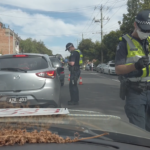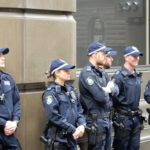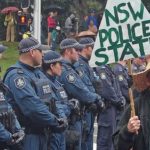These Punishments Aren’t Democratic: An Interview With the RLC’s Samantha Lee
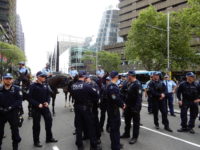
The need to get people off the streets and keeping a safe distance from others during the COVID-19 crisis is well understood. However, what’s not quite so understood is why NSW police officers have been handed extensive powers to enforce these measures, seemingly with no guidance.
As the Berejiklian government moved to shut down state parliament on 24 March, it first passed emergency laws that included providing police with the power to issue on-the-spot fines in relation to breaches of any public health orders passed during the pandemic.
These fines aren’t to be scoffed at either. An individual can be hit with a $1,000 infringement notice for breaching regulations. And with these orders being issued under the provisions of the Public Health Act 2010 (NSW), it means offending individuals are also liable to up to 6 months prison time.
Bans on public benches
The enforcement of COVID penalties started slowly with a few individuals being fined for breaching initial orders around the closure of businesses. However, after NSW health minister Brad Hazzard issued his 30 March public gathering and movement order, things began heating up.
From midnight that evening, people in NSW were confronted with a prohibition on being outside of their homes without a reasonable excuse, as well as a ban on being outdoors with more than one other person outside of their immediate household.
It was at this point that reports of bizarre applications of these laws began filtering in. There was the man who was fined $1,000 for eating a kebab on a public bench, while another was hit with an on-the-spot for falling asleep on one.
On 9 April, the Herald reported that a total of 151 COVID-19 related fines had been issued statewide. And while there seemed to be a dearth of fines handed out in Sydney’s wealthy east, those issued in the city’s less affluent southwest were noticeably greater.
Keeping them honest
The Redfern Legal Centre’s (RLC) head of police accountability practice Samantha Lee has raised concerns over the discrepancies in how the new regulations are being applied, both in terms of geographical location, as well as around warnings being issued prior to fining.
Ms Lee has called on NSW police commissioner Mick Fuller to release any guidelines around how these laws are being enforced by officers in the field, as these should be ensuring consistency in application.
The RLC solicitor is well-aware that a lack of clear guidance around police powers can result in their misapplication. Lee has long been calling for an overhaul of this state’s vague strip searches laws, so the ongoing proliferation of unlawful searches can come to an end.
Sydney Criminal Lawyers spoke to Ms Lee about her concerns regarding the transparency around COVID-19 regulations, her thoughts on having the police commissioner in charge of a health emergency, and the real danger that some of these powers could stick around post pandemic.

Firstly, since 25 March, NSW police officers have been able to issue steep on-the-spot fines for COVID-19 pandemic-related prohibitions that have been progressively rolled out under public health orders.
Some of these new restrictions expire after a certain time period, while others don’t seem to.
Ms Lee, what do you think about the way NSW authorities have implemented this new system?
There’s been little transparency in regard to how these laws have been rolled out to police on the ground.
So far, we’ve seen no guidelines or standard operating procedures that have been distributed to police in any state.
The laws are complex. People are confused. Personally, it took me hours to go through all the orders and try and understand them myself.
I can only imagine how police on the ground are struggling in interpreting and applying these types of powers.
There is also a lot of confusion about directions given by the prime minister and actual rules that have been made part of the orders.
For example, the prime minister has spoken about keeping a distance of 1.5 metres. Yet, this isn’t a specific offence under the orders. But, on the ground, there’s a lot of confusion around this.
I’d be asking for a release of any guidelines or operating procedures given to police. As well, there needs to be an understanding of what the review process is for a person who has been issued a fine. It’s unclear what that review process is.
In NSW, the police commissioner has stated that he’s personally reviewing each fine that has been issued.
That’s not sustainable. And also, there’s no transparency behind that. It would be much better if there were guidelines for police officers.
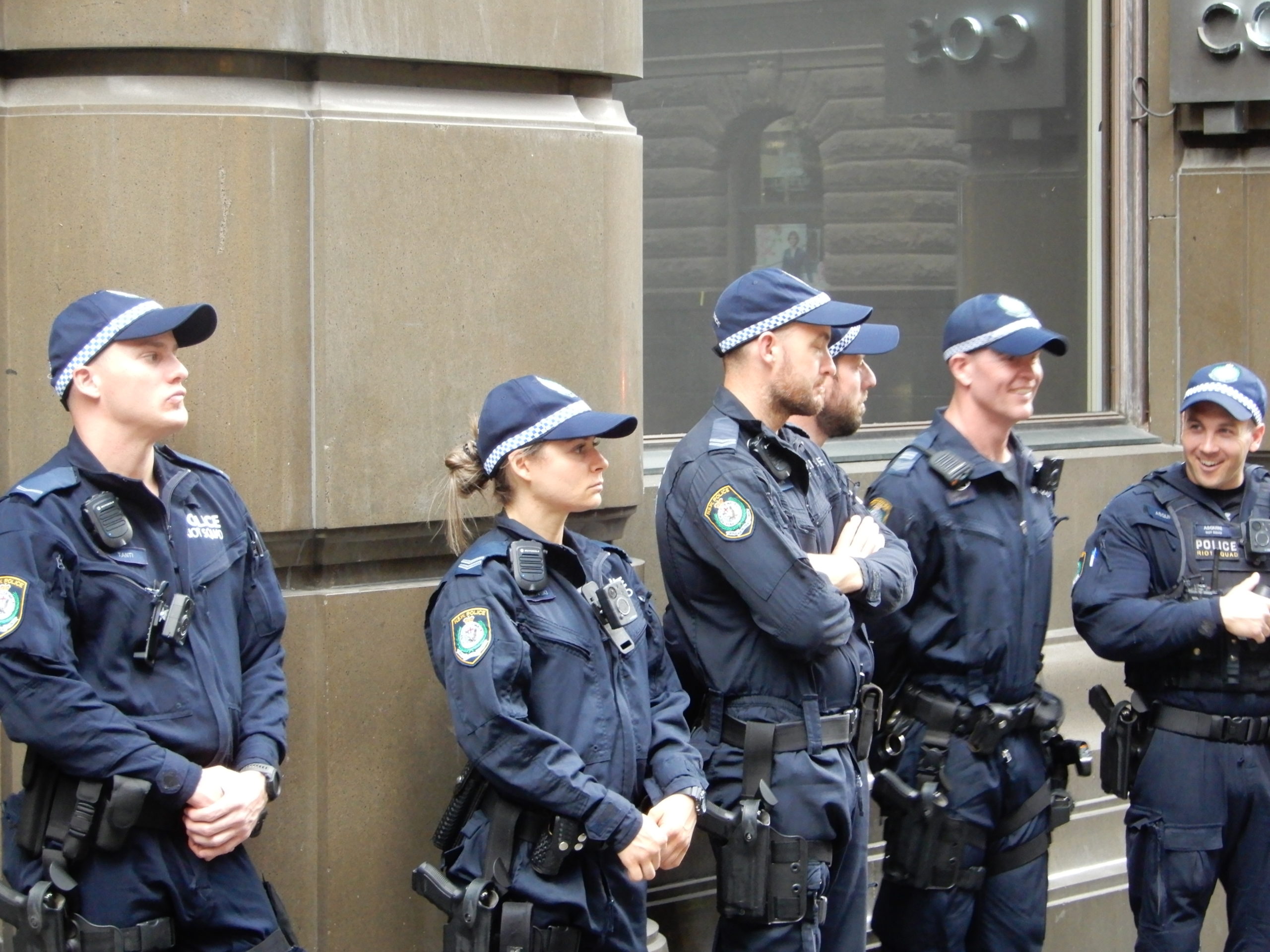
This new system relies on officer discretion. Statistics show that more fines are being issued in certain areas of wider Sydney than others.
What are your concerns with the way in which these penalty measures are being applied?
It’s a classic case of those who were already being policed, being policed more. What came out, about where these fines are being issued – particularly in the Sydney Morning Herald article – is that the east hasn’t been touched much at all.
But, there are more fines being issued in the Bankstown and Fairfield areas. These are areas of lower socioeconomic thresholds. People are most likely not able to pay such hefty fines.
It is at a time when people have lost their jobs. So, to get a thousand dollar fine on top of losing a job would be horrific, in terms of someone’s financial situation.
There should be clear guidance that a warning should be given first, and that a fine is a last port of call. And for those who are on Centrelink, the fines should be automatically halved.
Not only can police impose $1,000 infringement notices on those found breaching the new regulations, but people can be issued with court attendance notices, which then involve maximum penalties of up to 6 months imprisonment and/or a fine of $11,000.
In your understanding, how are officers imposing these laws on the ground?
We’ve been going through the cases that are coming up on the police Facebook page and collating them.
What we’re finding is that police are tagging the fines onto other offences. So, they’ve just become an additional offence to add onto existing offences.
Again, this is one of the heftiest on-the-spot fines available to police. It’s more than most traffic fines. And more than any criminal infringement notice fines. It should be an absolute last resort.
A court attendance notice should only occur in circumstances that warrant a court attendance notice. It should be a minimal amount of circumstances that warrant one.
But, again, these fines are not means tested. They are going to impact more on someone who is not financially well off, than someone who lives in a well-off area.
They also capture people that don’t have a house to go to where there is space, or where there are good family relations.
Sometimes people are out on the street because the home is not the best place to be.
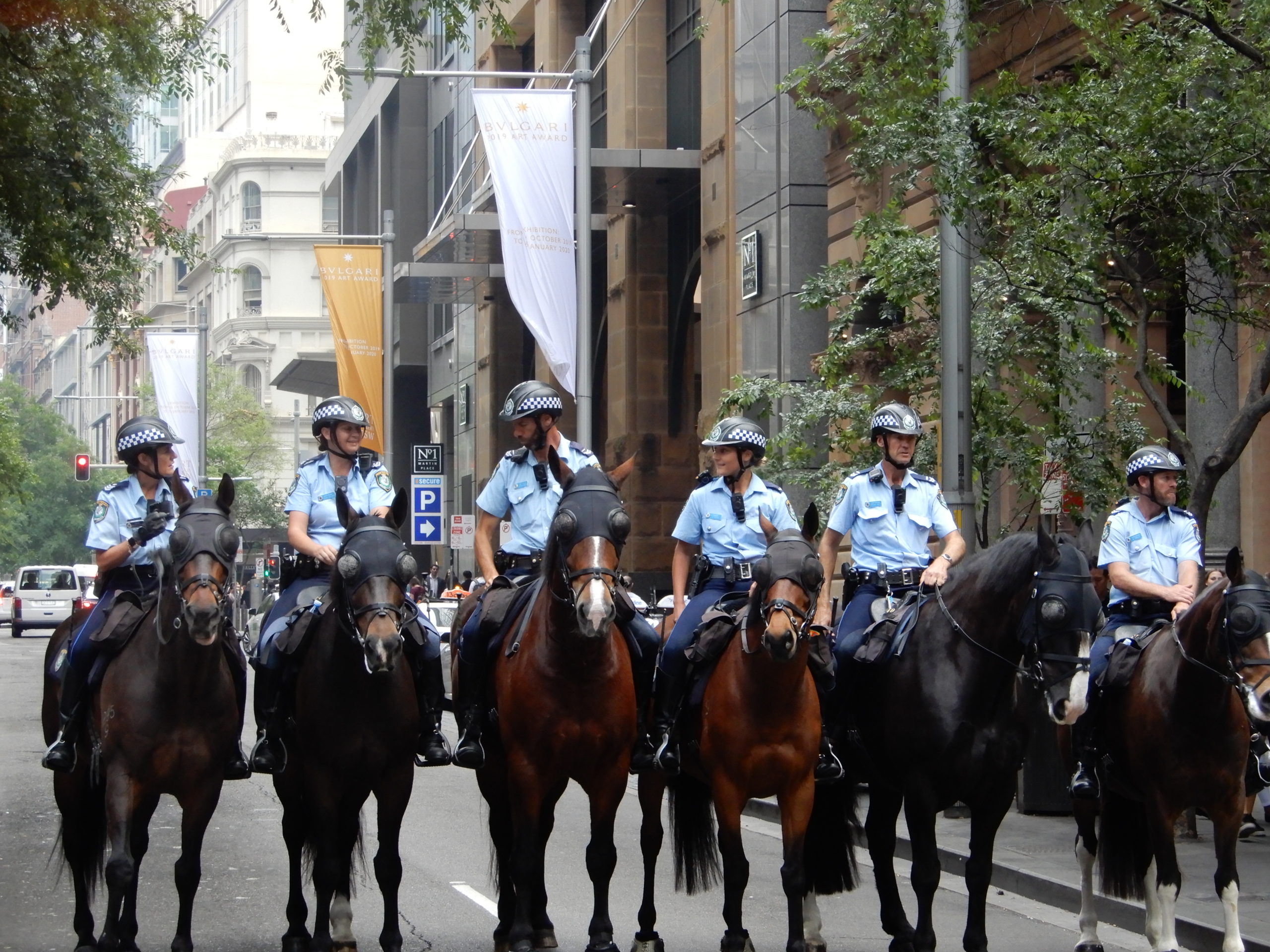
The Redfern Legal Centre has also called for age limits around these new regulations. Why is this needed?
We think fines should not be issued to children. These fines don’t fall under the Criminal Procedure Act, which prevents fines being issued to children under 18 years of age.
These fines fall under the Fines Act, which means there are limited areas for review of these fines. And we’re advocating for these fines not to be issued to children.
And what sort of advice would you give to individuals who feel that these new laws have been applied to them in circumstances where they shouldn’t have been?
Get legal advice. There is the option to take it to court, and that’s been called for over the weekend by various barristers and solicitors.
But, it’s good to get advice, because going to court can be costly and has fees attached. It is important that some of these fines do get tested in the courts though, because the laws are vague.
I am of the view, these laws aren’t being administered in a consistent way. And as we know through our work in regard to strip search laws, if police are not provided with clear rigorous guidance as to the application of the law, there’s a high chance that these laws are being applied unlawfully.
Not only have police powers been greatly expanded, but over the weekend of the 28 March, it was announced that NSW police commissioner Mick Fuller was being handed the reins of the entire COVID-19 response in this state.
What do you think about law enforcement having ultimate control over what’s essentially a health emergency?
You’ve hit the nail on the head. This is a public health issue, not a law and order issue.
This is an issue that’s impacting on the community in various ways, and to punish people for a situation which is totally out of their control and is having an immense impact on their lives is just not democratic.
And this doesn’t help to create a solidarity in the community in trying to push beyond this very difficult pandemic.
And lastly, Ms Lee, there have been concerns raised over whether these new police powers will be given a more permanent status following the pandemic.
What are your thoughts or concerns regarding this prospect?
We are already seeing a bleeding out of police powers, particularly in NSW. And it’s a realistic concern: once you issue police extended powers, it is very hard to reel them in.



